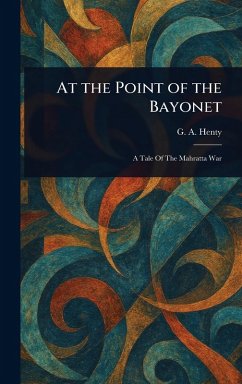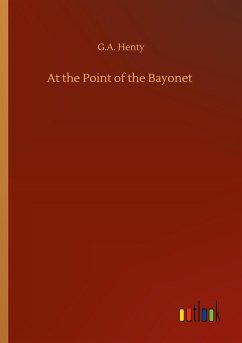G. A. Henty's "At the Point of the Bayonet: A Tale of the Mahratta War" plunges readers into the heart of British India during a turbulent period of conflict. This historical fiction vividly portrays the clash of empires during the Mahratta War of 1803, a pivotal moment in the expansion of the British Raj. Experience the drama and intensity of military history through Henty's masterful storytelling. While classified as juvenile fiction, the novel provides a compelling glimpse into the strategies and sacrifices of war, capturing the spirit of the era. Explore themes of courage, duty, and the human cost of conflict against the backdrop of a vast and complex land. This edition preserves the timeless narrative, offering an engaging read for anyone interested in historical fiction and the military history of India. This work has been selected by scholars as being culturally important, and is part of the knowledge base of civilization as we know it. This work is in the public domain in the United States of America, and possibly other nations. Within the United States, you may freely copy and distribute this work, as no entity (individual or corporate) has a copyright on the body of the work. Scholars believe, and we concur, that this work is important enough to be preserved, reproduced, and made generally available to the public. We appreciate your support of the preservation process, and thank you for being an important part of keeping this knowledge alive and relevant.
Bitte wählen Sie Ihr Anliegen aus.
Rechnungen
Retourenschein anfordern
Bestellstatus
Storno









